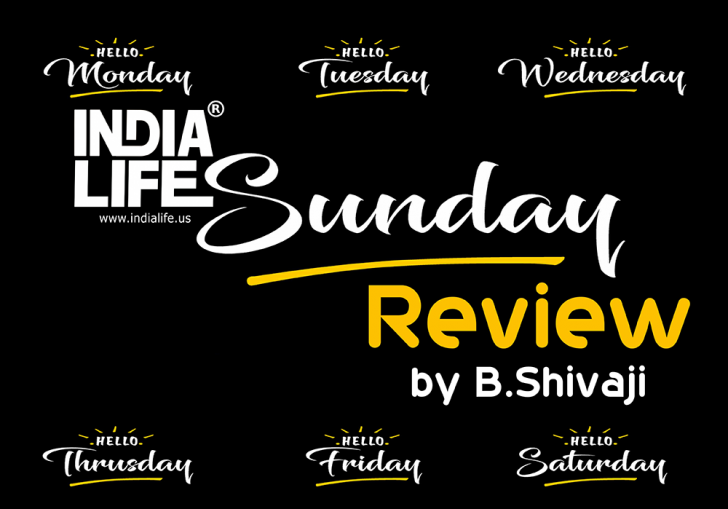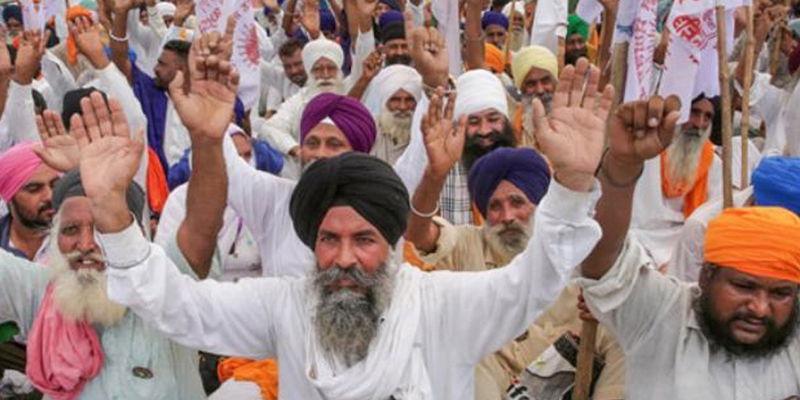Headlines
IndiaLife Sunday Review by B.Shivaji

No end in sight for farmers’ miseries It has been seven months since the people who ensure that India does not go to bed on an empty stomach have been braving the cold, the rain and the sun on the borders of India’s capital. They have been protesting against the infamous farm laws on the outskirts of the nation’s capital territory and there is not end in sight to their miseries. As the agitation entered its eighth month on June 26, Federal Agriculture Minister Narendra Singh Tomar appealed to protesting farmers to end their agitation while saying that the government was ready to resume talks on the provisions of three legislations. The Government of India and farmer unions have held 11 rounds of talks so far, the last on January 22, to break the deadlock and end the protest. Talks have not resumed following widespread violence during a tractor rally by protesting farmers on January 26. The farmers believe that three laws will end state procurement of crops at minimum support price. The Supreme Court has put on hold the implementation of the three laws till further orders and has set up a committee to find solutions. The committee has submitted its report. On June 26, the farmers observed Kheti Bachao, Loktantra Bachao Diwas (Save Agriculture, Save Democracy Day). The attempts by farmers to march to governors' residence in several states, seeking to submit memoranda seeking the withdrawal of the three farm laws, were prevented in many states. The Samyukta Kisan Morcha (SKM), an umbrella body of 40 farmer unions protesting at various Delhi border points, said that farmers were detained in states such as Haryana, Punjab, Karnataka, Uttarakhand, Madhya Pradesh and Telangana during the protests. As an expression of solidarity, one such rally was also being planned in Massachusetts, USA, the SKM said. It is a shame that the government is forcing these farmers, who ensure food security to the nation, to hold rallies during one of the worst pandemic that the world has ever faced. Many have died at the camps on Delhi’s borders as a result of the pandemic and due to the cold wave during winter. There has been only a lukewarm response from the people to the protest. It would be important to reiterate that vast majority of the people in rural areas of the country are farmers and farm labourers and it was high time that the issue is amicably resolved. Jammu and Kashmir issue festers It was on August 5, 2019 that the NDA Government abrogated Article 370 and split Jammu and Kashmir into two union territories. The issue has been on the top of the agenda for the Bharatiya Janata Party and it took the party 70 years to realise it. The Government of India issued a Presidential Order superseding the 1954 order, and making all the provisions of the Indian constitution applicable to Jammu and Kashmir. Article 370 of the Constitution of India had ensured special status to Jammu and Kashmir. On June 24 this year, Prime Minister Narendra Modi chaired an all-party meeting at his New Delhi residence with 14 leaders from Jammu and Kashmir to discuss the future course of action for the erstwhile state. At the meeting, National Conference president and former chief minister of Jammu and Kashmir Farooq Abdullah urged the prime minister to work towards building trust in Jammu and Kashmir by ensuring that its statehood is restored. Former Chief Minister of Jammu and Kashmir and People’s Democratic Party leader Mehbooba Mufti said people’s confidence had to be won in the region before delimitation and polls. She said her struggle for restoration of the special status of J&K will continue and that she will not contest elections until Article 370 and 35A are brought back. National Conference chief Omar Abdullah said it was the duty of the Centre to restore the broken trust of the people. "A trust has broken between the Centre and Kashmir. It is the Centre's responsibility and PM should take all the measures required to restore it," said the 51-year-old former Chief Minister, who added that his party was going to "use the constitutional right to challenge this decision (scrapping of special status) in the Supreme Court". For the politicians in Jammu and those holding the reins at the Centre, the issue is that of a territory that is an integral part of India. But for the common man on Lal Chowk in Srinagar, the difficulties of living in a situation similar to that of an emergency are not so enjoyable. Even if the government claims that situation has improved for the people of the state, losing of special status had hurt the pride of ordinary Kashmiris. Even if it is a gilded cage, the bird’s natural instinct has been curtailed for long. Long Live Democracy, though it is only a pale shadow of how it was originally envisaged.




































